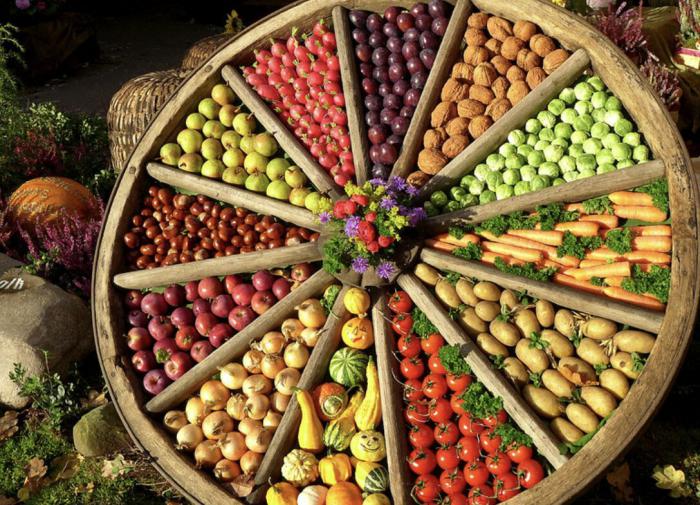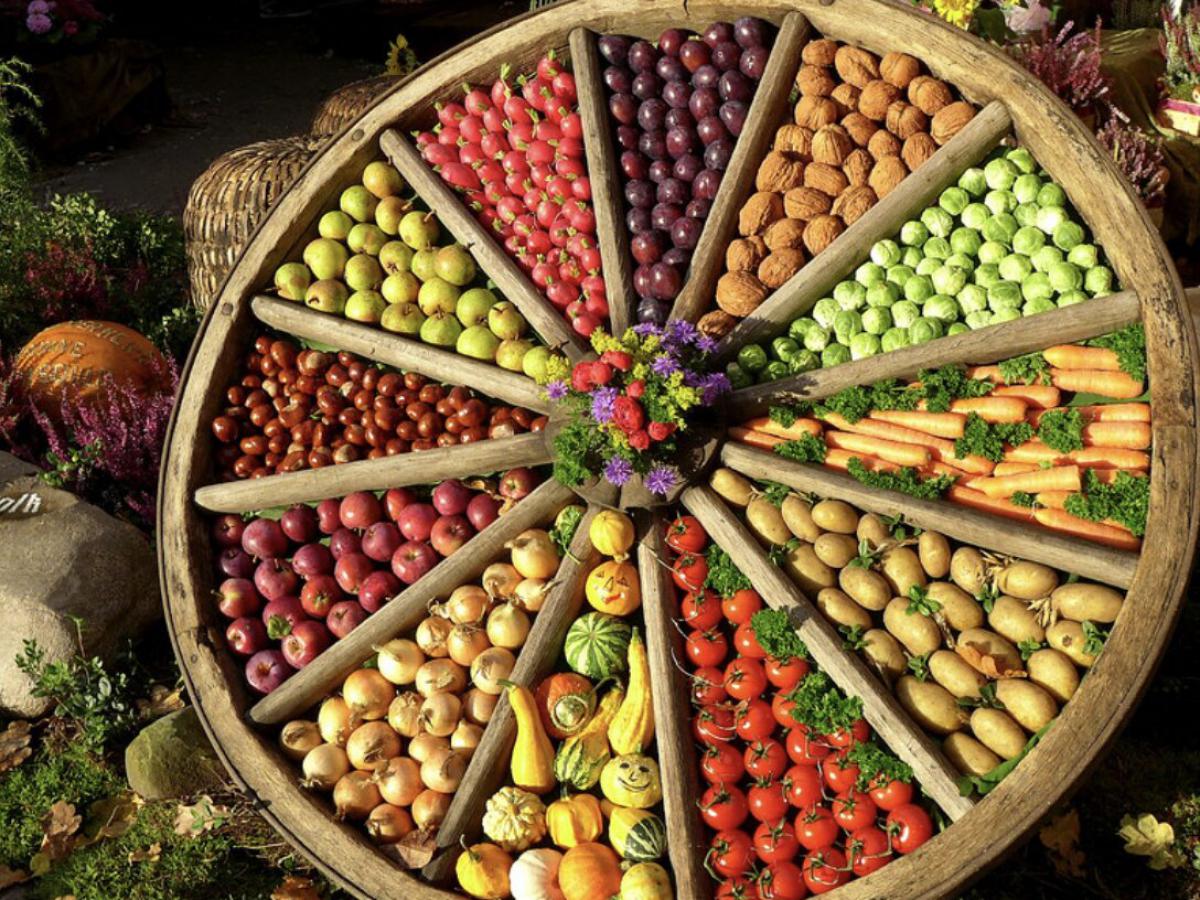Increased consumption of fruits and vegetables, rich in fiber, is a positive step towards reducing cholesterol, blood pressure, blood sugar and weight. However, if you are not used to eating fiber-rich foods, it is advisable to do this graduallyto avoid bloating and abdominal discomfort. Nutritionist Vasilisa Ponomareva, speaking at the Medical Forum, notes that the required amount of fiber changes with age. As a general recommendation, men under the age of 50 should aim to consume 38 grams of fiber per day, while women in the same age group should aim to consume 25 grams per day.

Photo: “Vegetables & Fruits in a Wheel” by theglobalpanorama is licensed under CC BY-SA 2.0.
Recommended fiber intake decreases with age. Men age 51 and older should consume 30 grams of fiber per day, while women should aim for 21 grams per day. Be aware that certain foods and drinks may cause digestive discomfort.
High fructose fruits: Although fruits contain essential fiber, vitamins and minerals, some may be high in fructose and sorbitol, which can lead to inflammation and gas. Try to avoid fruits such as apples, pears and watermelon, and choose bananas, oranges, melons and darker berries (such as blackberries, blueberries and strawberries), which contain valuable antioxidants.
Beans and lentils: While beans and lentils are excellent sources of protein and fiber, they contain complex sugars called oligosaccharides, which can cause bloating and gas during digestion. You can reduce the sugar content by rinsing canned beans and cooking them thoroughly. Alternatively, you can try more easily digestible options such as tofu, tempeh or quinoa.
Cruciferous vegetables: Broccoli, cauliflower, Brussels sprouts and cabbage can be difficult to digest due to the complex fibers they contain, which ferment in the intestines and cause gas and bloating. Consider adding dark leafy greens such as kale, spinach and chard to your diet as more gut-healthy alternatives.
Onion and garlic: Many onions, including red and yellow onions, as well as garlic, contain fructans, which can ferment in the intestines, leading to nausea, bloating, gas and diarrhea. You can reduce sensitivity by thoroughly cooking these vegetables or soaking them in water for at least 15 minutes before consuming them raw. Additionally, complement your dishes with other spices and herbs such as basil, ginger and oregano to add depth of flavor without causing digestive problems.
In addition to these dietary adjustments, you can relieve bloating and discomfort with these additional tips:
Eat less and more often: Choose smaller portions and more frequent meals throughout the day to promote efficient digestion and reduce the likelihood of bloating.
Chew your food thoroughly: Chewing food thoroughly promotes proper breakdown in the mouth, improving digestion and easing stress on the stomach. It also helps prevent overeating, which can put stress on your digestive system and make bloating worse.
Stay hydrated: Adequate daily water intake is essential for healthy digestion, ensuring the smooth passage of food through the digestive tract.
Avoid carbonated drinks: Carbonated drinks introduce excess air into the digestive system, which leads to increased bloating and gas. Instead, choose non-carbonated drinks or herbal teas such as mint, chamomile or ginger after meals to aid digestion and soothe the gut.
By following these recommendations and gradually adjusting your diet, you can reduce the risk of bloating and discomfortwhile enjoying the many benefits of a fiber-rich diet.
